President Trump’s on-again, off-again trade war is forcing small businesses of all kinds — from wholesalers to restaurants to startups — to decide whether to stick to their plans or hunker down.
How they respond will be pivotal in whether the economy can survive the shock of tariffs and the stock market turbulence it triggered. Some businesses are cutting budgets amid fears of a recession. Others are staying the course, hoping the confusion subsides so they can plot their next moves.
“As a CEO, I don’t want my team just spending all their hours consumed by trying to just keep up with the news,” said Poorvi Patodia, who runs Needham company Biena Snacks sold in nearly 15,000 stores nationwide. “We know now there’s enough of a pattern that some news comes out, but then things either reverse, or there’s other negotiations or conversations being had.”
The numbers Patodia tracks most closely are not the gyrating stock prices of late but weekly sales of her products at retailers ranging from Whole Foods to Walmart. So far, she hasn’t seen a dip — and she doesn’t expect tariffs to change consumer behavior in a meaningful way for months. “As a CEO, I also don’t want to overreact,” she said.
Turns out waiting Trump out might be a strategy onto itself. On Wednesday Trump announced a 90-day pause on so-called reciprocal tariffs that were supposed to take effect that day — news that sent the Dow Jones Industrial Average up nearly 8 percent.
But there’s a fine line between patience and paralysis. Trump’s tariffs — and the potential for retaliation by trading partners — have many companies deeply worried the economy will take a hit from rising prices and a retreat by consumers. Even as Trump backed away from most tariffs, he raised them on Chinese imports by 125 percent.
“What happens in this kind of situation is that consumers delay expenses and firms put all of their investment decisions on hold,” said Tarek Hassan, an economics professor at Boston University. “The US economy experienced real GDP growth of 2.8 percent [last year]. Now we’re lucky if we come out at zero.”
Multinational companies have been most vocal about the dangers they see coming at them.
“The economy is facing considerable turbulence,” Jamie Dimon, chief executive of JPMorgan Chase, wrote in his annual shareholder letter. “Whether or not the menu of tariffs causes a recession remains in question, but it will slow down growth.”
Billionaire hedge fund investor Bill Ackman, who supported Trump’s presidential campaign, was less diplomatic. The tariffs, he said, could lead to an “economic nuclear winter.”
But small businesses, which employ just about half of American workers, are on edge, too.
More than a quarter of small-business owners say they’ve already seen a tariff-related decline in sales, according to a survey by Alignable, a Boston-based business networking platform. Some 44 percent expect lower sales due to tariffs, with 13 percent bracing for significant revenue losses.
A company doesn’t have to be immediately affected by tariffs to be struggling with a darkening outlook.
Roger Berkowitz — former owner of Legal Sea Foods who now runs the ecommerce site Roger’s Fish Co. — says much of his seafood is from the United States, so tariffs will have a minimal impact. But he’s not happy about Trump’s chaotic approach to the economy.
“We would feel better if we knew there was a bonafide plan,” said Berkowitz. “The anxiety and apprehension of the unknown is really what’s unnerving.”
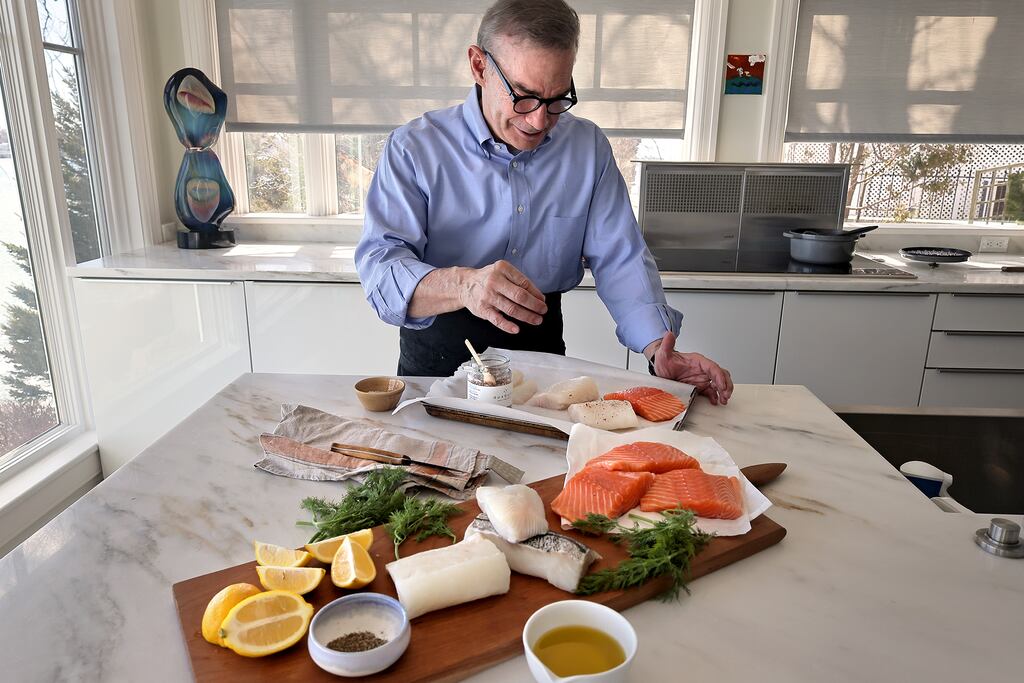
David Chang, a general manager at recruiting startup Hunt Club, said his clients are still making key hires, but some are pulling back on capital-intensive decisions like opening new offices.
At the same time, in the startup community where he’s an angel investor, he’s noticed growing concerns about an economic downturn and “battening down the hatches.”
“People are definitely taking more of a conservative approach,” said Chang. “So let’s say that there’s like three or four bets they had wanted to take. They’re only going to take one of those bets now.”
For all the tariff talk, it’s unclear what goods will cost as the increases work their way through the supply chain. Still, some businesses aren’t waiting to make adjustments.
Lê Madeline, a modern Vietnamese restaurant in Quincy, is dropping from the menu this week a popular giant prawn dish that is sourced from Africa. The dish costs $24, and a tariff on the prawn would likely push the price past $30.
“It wasn’t feasible,” explained owner Tam Le, about keeping the item on the menu.
Until recently, Le had expected his business to be as strong as it was last year. But the tariff-driven stock market turmoil is making him rethink his forecast. That’s because when consumers get nervous about the economy, one of the first things they pull back on is eating out.
“It’s in the back of my mind,” said Le. “We have to really look at the numbers and make sure we’re operating a very tight business because it can become tight soon.”
Trump says his tariffs will pave the way for a revival of American manufacturing. Taxing imports will persuade companies to bring production back to the United States and protect strategically important industries.
And he’s got support among manufacturers who face high overseas tariffs while their foreign rivals benefit from lower US duties. Companies like Excel Dryer, whose XLERATOR hand dryers are found in office, restaurant, and rest-area bathrooms around the country.
The East Longmeadow company makes all its products in the United States, even those sold overseas, with 100 percent made-in-America parts. Not only will foreign competitors like Dyson be hit by import duties, Excel expects tariffs in key export markets like Turkey and the European Union to fall as they reach deals with Trump, making its dryers more price competitive.
“I believe that it’s only going to ultimately get better for us and help open up international markets more,” said William Gagnon, vice president and chief operating officer of Excel, which his father bought in 1997.
Europe is very much on the mind of Arpit Patel, with Trump threatening to impose tariffs on European wines and spirits. None more so than French rosé.
“People are forgetting how popular a French rosé is,” said Patel, who owns Baramor restaurant and Oak n’ Barrel wine shop, both in Newton. “If we had to sell a rosé for $22 a glass, who’s going to buy it?”
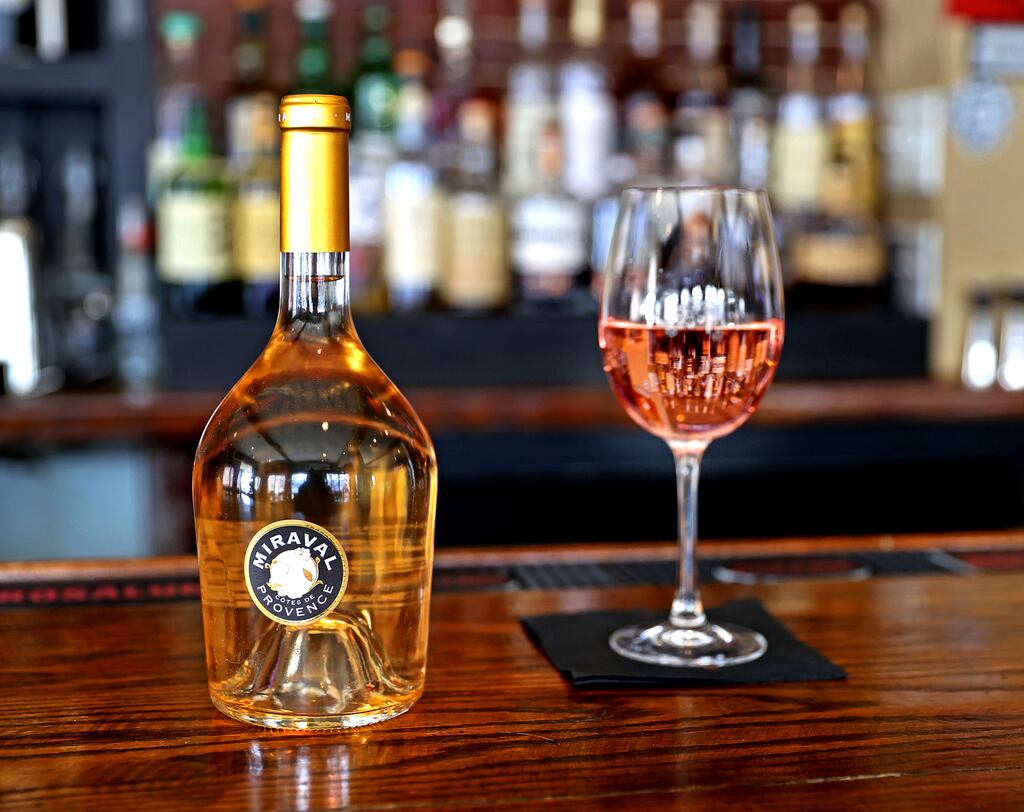
Patel isn’t tempting fate. He plans to swap out his current upscale vintage with an everyday French rosé at his restaurant to keep the price at $16 a glass.
And since only 30 percent of the wine inventory at his shop comes from the United States, Patel will face higher expenses from tariffs and likely have to trim labor costs by reducing store hours. Sure, he’s seen a recent bump in sales from customers stocking up on imported alcohol ahead of the tariffs, but he knows that’s not sustainable.
“One-time sales isn’t our business model,” said Patel. “We’re in a business of repeat sales.”
Tony Tjan, founder and CEO of Miniluxe, a Boston-based chain of high-end nail salons, anticipates Trump and US trading partners will eventually work out a deal. Tjan remains confident that even during tough times, consumers will seek out affordable luxuries like manicures. He believes it’s best to sit tight until the economic picture becomes clearer.
“You will know a lot more in the next 30 days,” he said.
Diti Kohli of the Globe staff contributed to this story.
Trump could reshape the economy. These Massachusetts business owners are betting on it.Could Trump’s trade war be his ‘Nixon shock’ moment?From Wayfair to Temu, Boston-based retail companies face gut punch from tariffs. But there’s one that might benefit.Should you buy a car right now? Will 401(k)s ever recover? We answer your tariff questions.

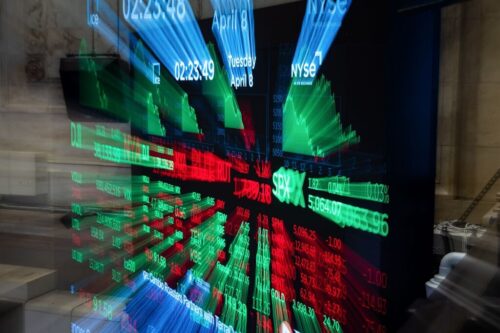
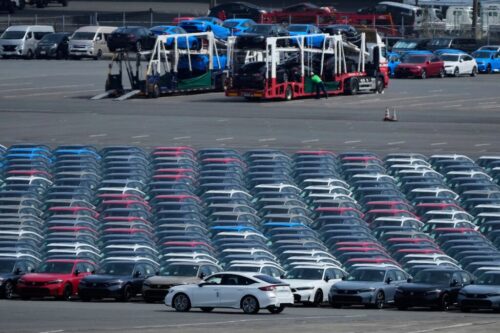
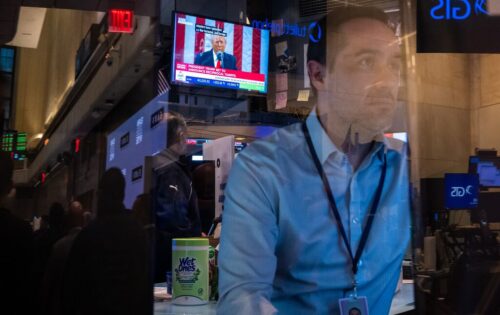
Comment count: